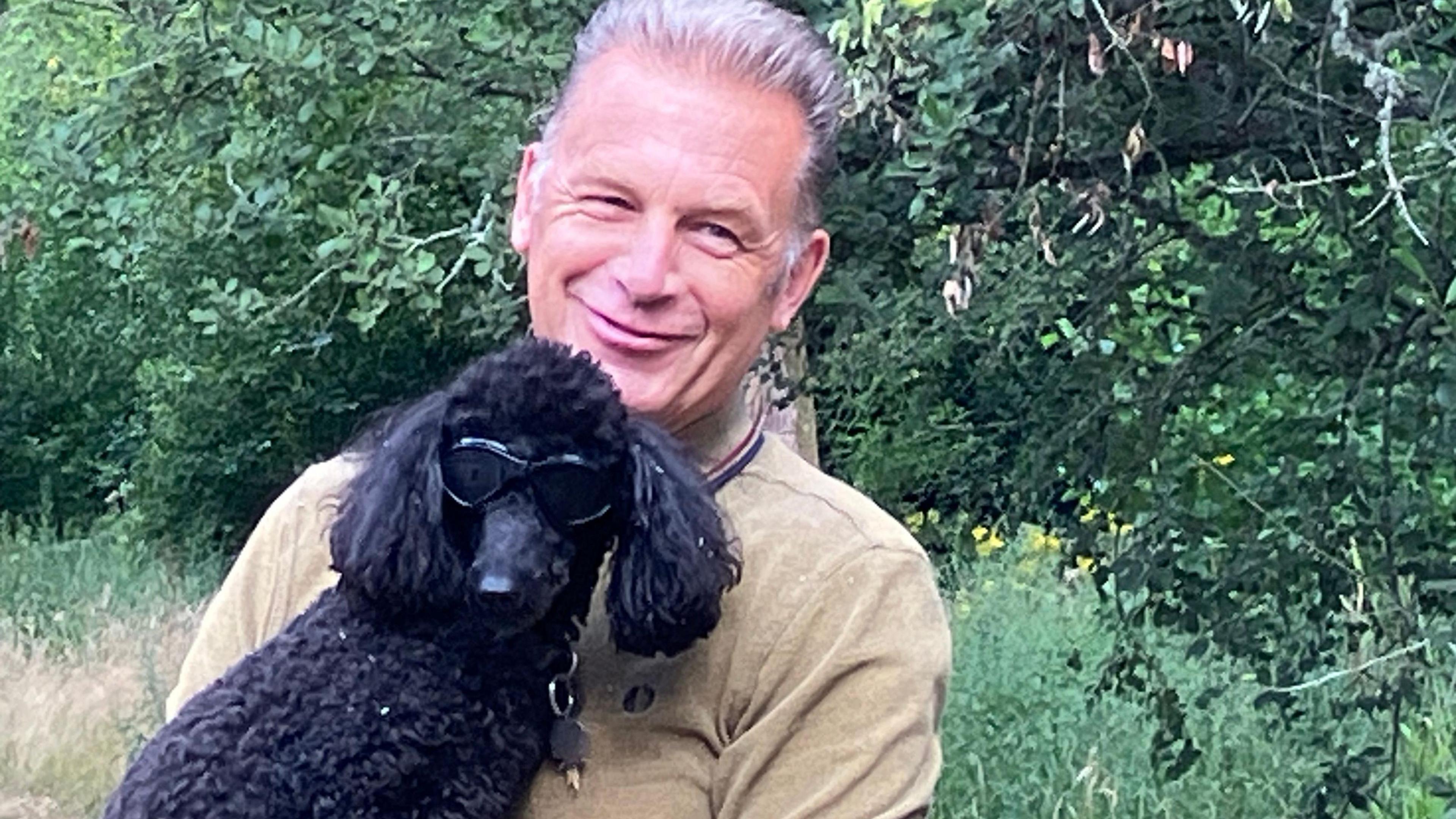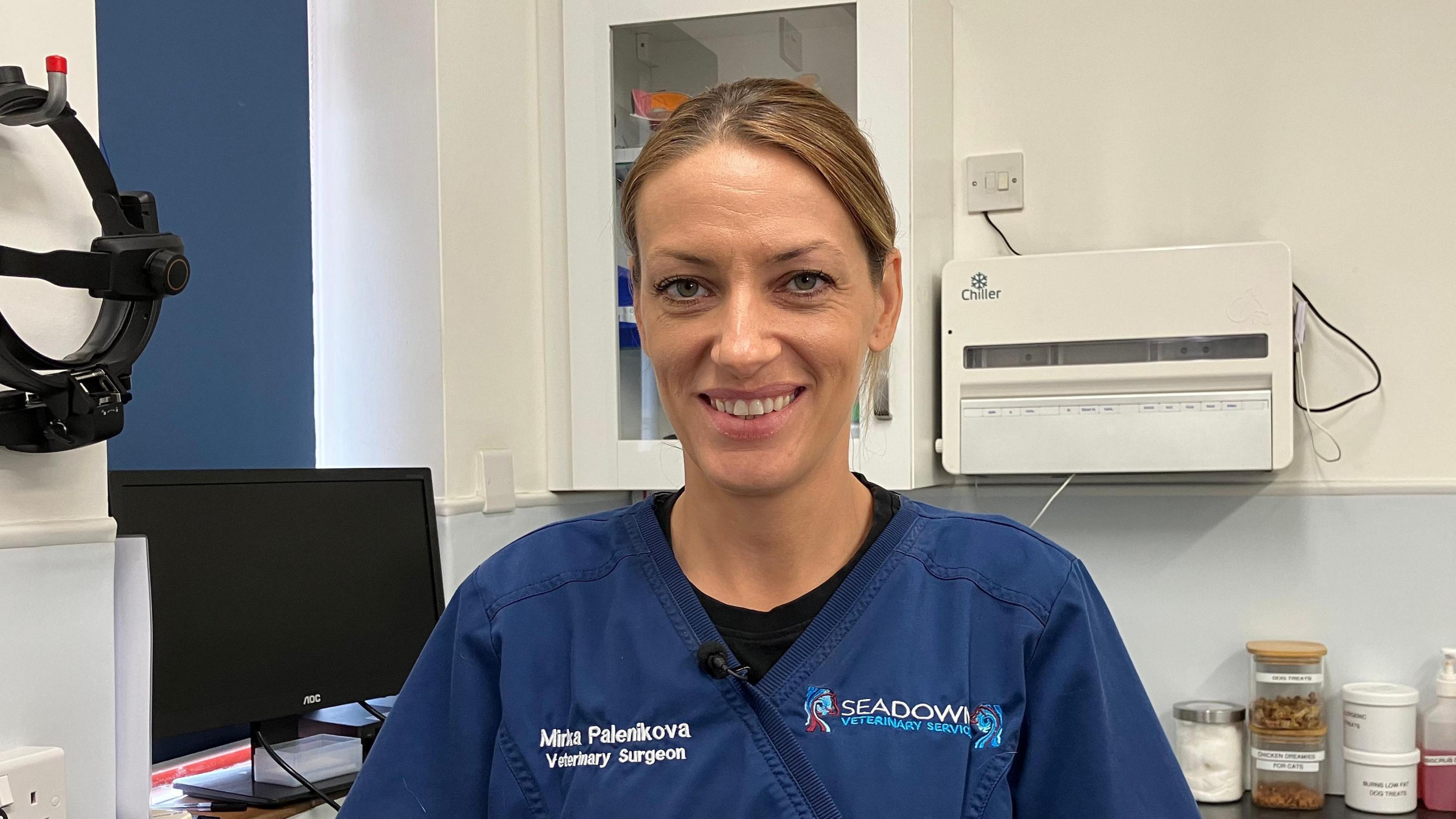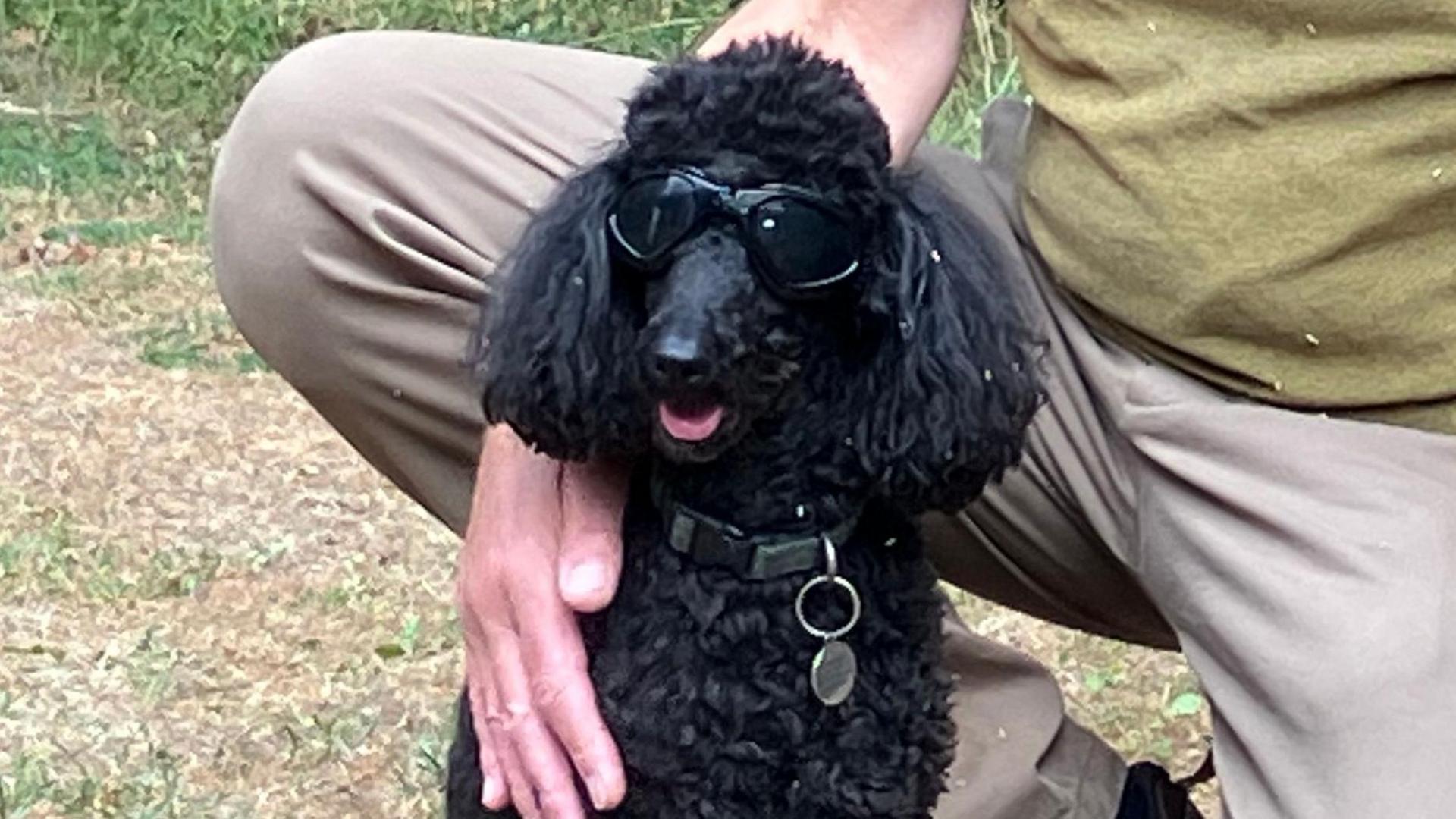TV presenter's grass seed warning for dog owners

Chris Packham's dog Nancy got grass seeds stuck under her eyelids on two separate occasions
- Published
The broadcaster and naturalist Chris Packham has warned people to be aware of the risk grass seeds pose to dogs after one of his pets had to be rushed to the vet.
Mr Packham, who lives in the New Forest, said his poodle Nancy needed treatment on two separate occasions after she developed weeping eyes and symptoms similar to conjunctivitis.
"Her eye was inflamed and clearly sore," he said. "She was becoming increasingly distressed."
It turned out that both times she had a grass seed stuck behind her eyelid, which was causing irritation and pain.
But he said on both occasions a vet was able to remove it without any long-term damage.
Nancy now wears specialist doggie goggles when she goes out in the long grass to prevent it from happening again.

Veterinary ophthalmologist Mirka Palenikova said she was currently seeing one-to-two cases a week of dogs with grass seeds stuck in their eyes
Mirka Palenikova is a specialist in Ophthalmology at Seadown Vets in Hythe, and treated Nancy.
She said: "I could see there was quite a lot of discharge coming out from the eye and she was in pain so we had to apply topical anaesthetic into her eye to be able to examine her."
Ms Palenikova said it was important for owners to check their dogs for signs of conjunctivitis and grass seeds in their eyes, paws, ears and coat after every walk.
She said if left untreated grass seeds can lead to blindness, and in some cases needed a test like a CT or MRI scan to find it.
And as more people try to encourage biodiversity by leaving gardens and fields to grow, rather than always cutting grass, it is a problem that she is seeing more frequently.
"We are seeing maybe a case or two weekly. With the weather warming as well we see more cases, and I even saw a cat recently with grass seed in her eye which was unusual," she said.
"I would advise not to walk dogs in areas where there are obvious grass seeds or meadows with long grass."

Nancy now has specialist goggles to wear in the long grass
To encourage biodiversity Mr Packham only cuts the grass in his garden once a year, but said he had never had this problem before.
"I suppose it's an artefact of the fact that we've generated an environment here where there's an awful lot of seed and they do like playing, running through the garden," he said.
He is now vigilant about checking for grass seeds, and Nancy now wears special goggles to protect her eyes when walking in long grass.
"When I heard about them, I was very sceptical and thought this is ridiculous," he said.
"Although I thought it was an absurd idea, ultimately I'd rather have a dog with two perfectly functional eyes than a dog that had lost one of them because of my prejudice."
Get in touch
Do you have a story BBC Hampshire & Isle of Wight should cover?
You can follow BBC Hampshire & Isle of Wight on Facebook, external, X (Twitter), external, or Instagram, external.